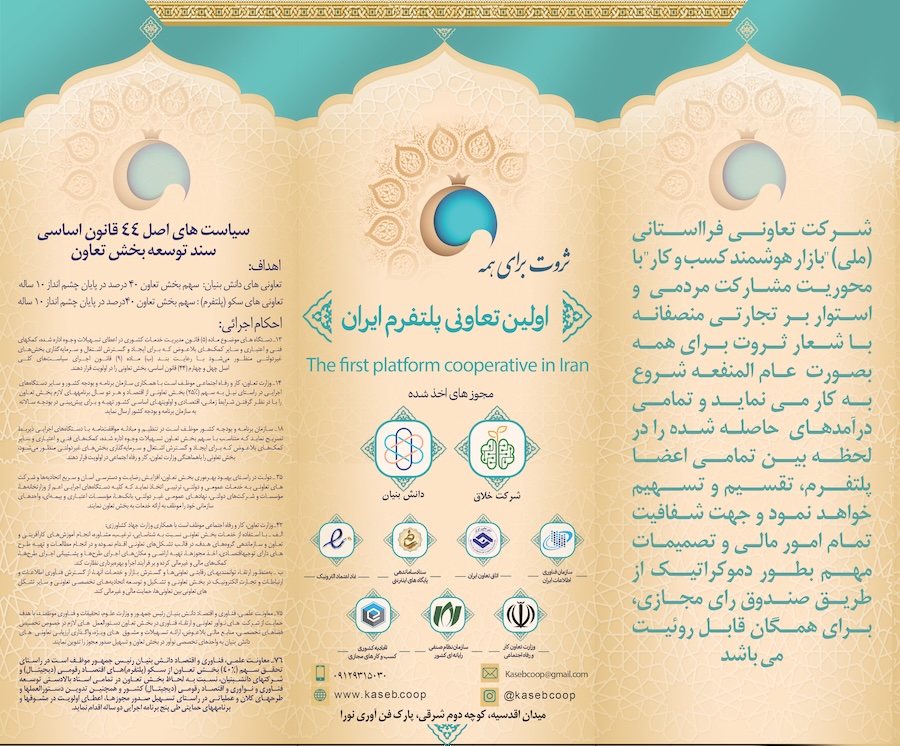Kaseb Cooperative, Iran’s First Platform Cooperative Experiment

Kaseb Platform Cooperative, set to launch in 2025, will be Iran’s first platform co-op experiment. It is part of Iran’s robust cooperative movement—comprising over 95,000 cooperatives and 1.8 million workers across sectors like agriculture, housing, and services. Kaseb Cooperative supports the growth of licensed small businesses at a time when they are threatened by large online stores like Digikala, Technolife, and Basalam. It features an unusual business model, functioning as an online marketplace that connects consumers with local small businesses while encouraging in-person pickups. Consumers can solely view businesses in their own city, integrating traditional markets into the platform coop. Kaseb plans to operate by retaining 5% of its profits to cover platform operations and distributing the remaining 95% evenly among its members, whether they are farmers or businesses selling appliances. In comparison, Amazon typically takes 25-30% of a seller’s revenue on average, covering referral fees, fulfillment costs, and other optional services.
When Kaseb earns a $10 commission from the sale of a product, such as a bicycle from a store in Isfahan, for example, 5% of the commission is retained by the cooperative to support its operations. The remaining 95% is immediately distributed to all platform users across the country. Additionally, all payments, profits, and purchase data are displayed in real time, allowing users in any given city to view all transactions happening in their area. Kaseb’s model reflects aspects of Islamic profit-sharing systems like Mudarabah, emphasizing equitable distribution of profits and losses among participants.
As Kaseb is starting out, it already has commitments from 200 members and 36 businesses. By verifying members through their national ID numbers, the platform minimizes the risk of fraud and builds trust. An early test instance of the site is already up at https://kaseb.coop/. Collaboration with the Ministry of Cooperatives secured national recognition for the platform cooperative economic model and its inclusion in Iran’s national digital economy development plans. Kaseb aims to restore trust in the cooperative economic model undermined by mismanagement including financial violations from directors of traditional co-ops in Iran, through the mentioned financial transparency and real-time profit sharing.

The Kaseb digital platform, developed using PHP and Python, has received an investment of over $40,000 to date. An additional $5 million is required over three years to complete development and achieve nationwide expansion, as the previous Iranian government’s allocation of over $1 million for the initiative was not received due to a change in administration.
Alireza Amirhosseini, frustrated by wealth concentration among a few shareholders while managing a large digital platform, proposed Kaseb years ago to promote economic equality and democratic decision-making. Key collaborators include Saleh Ozhan, who coordinated initial ideas and meetings; Saeed Yousefi, who managed relations with Iranian government officials; Meysam Nejad Ebrahim, who handled branding; and Sahar Ozhan, who led research and development. Omid Mohammadpour developed the sales algorithm and plans a French translation for expansion, while Majtaba Erfani, based in Germany, explores operational models for Europe. Reza Airamlou Nezhad oversees programming, ensuring a strong technical foundation.
